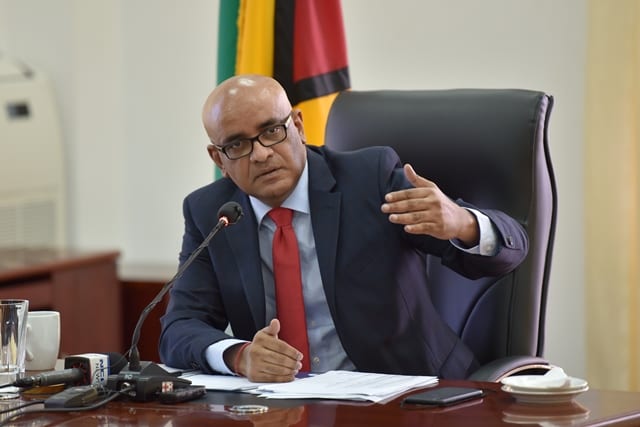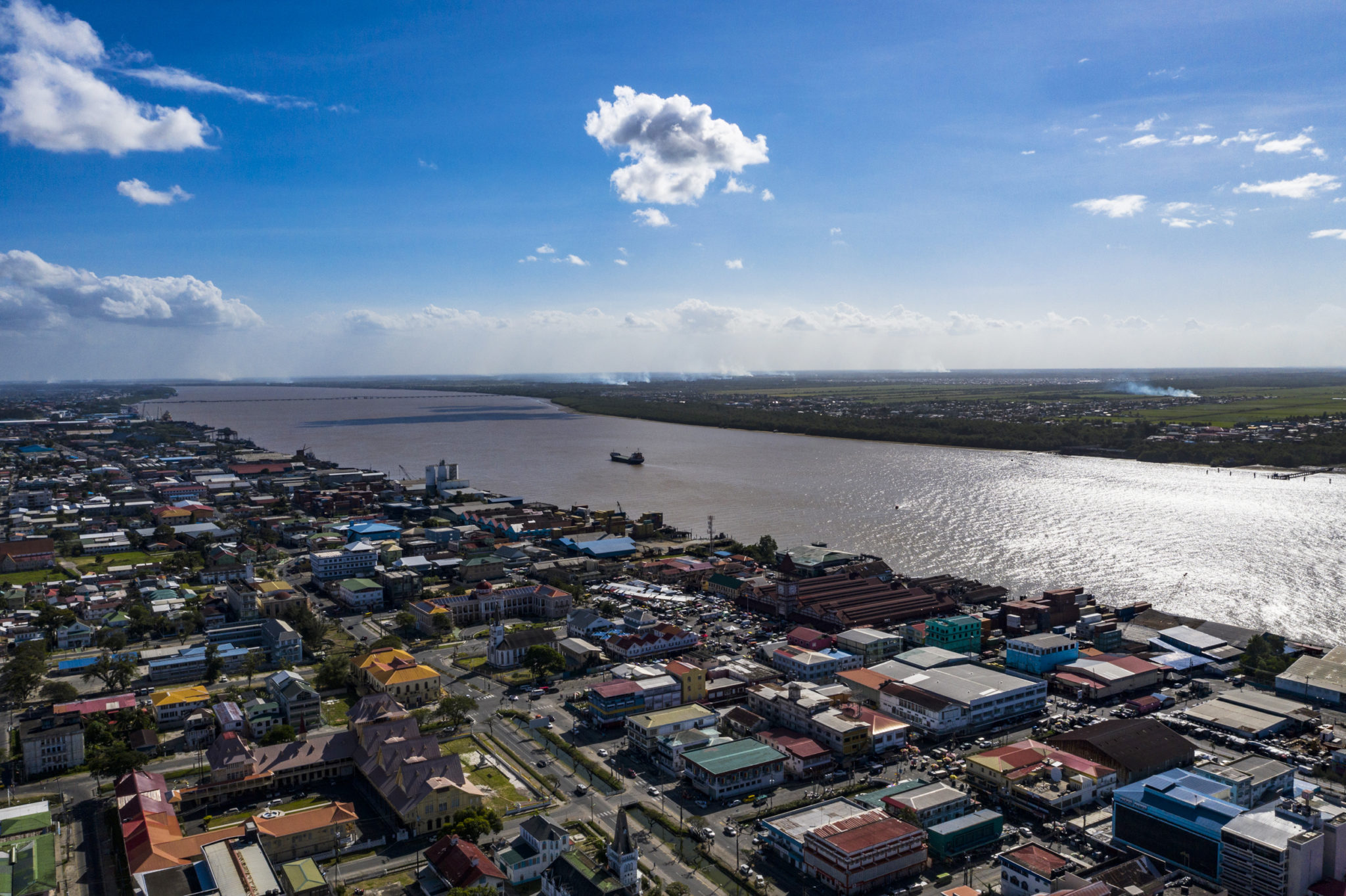There has been incredible progress in Guyana and the region on multiple fronts. Here are the top stories from OilNOW this year, based on readership.
The University of Guyana has expanded places for engineering students to help meet the oil sector’s demand. Vice Chancellor Dr. Paloma Mohamed-Martin said companies are absorbing students even before they graduate from the first degree program. The industry generally puts the students through additional programs so they can specialize.
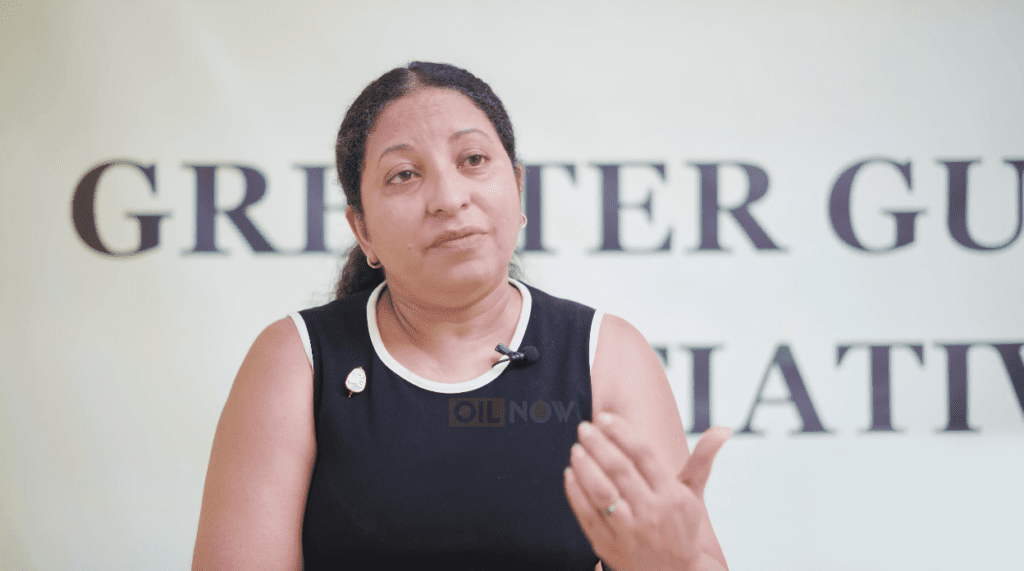
February: US$13 million FPSO facility simulator commissioned, boosting O&G training in Guyana
A training initiative largely led by SBM Offshore and the Stabroek Block partners—ExxonMobil, Hess, and CNOOC—resulted in the commissioning of a US$13 million facility simulator at Port Mourant, dubbed FacTor. The fully functional plant mirrors the operation of real offshore platforms using water and air, and is designed to accommodate a batch of 24 students. FacTor is part of a broader budding institute called the Guyana Technical Training College. This fruit of a partnership between the Guyana government and leading oil sector players has projected investment totaling over US$100 million and is expected to be completed in October 2026.
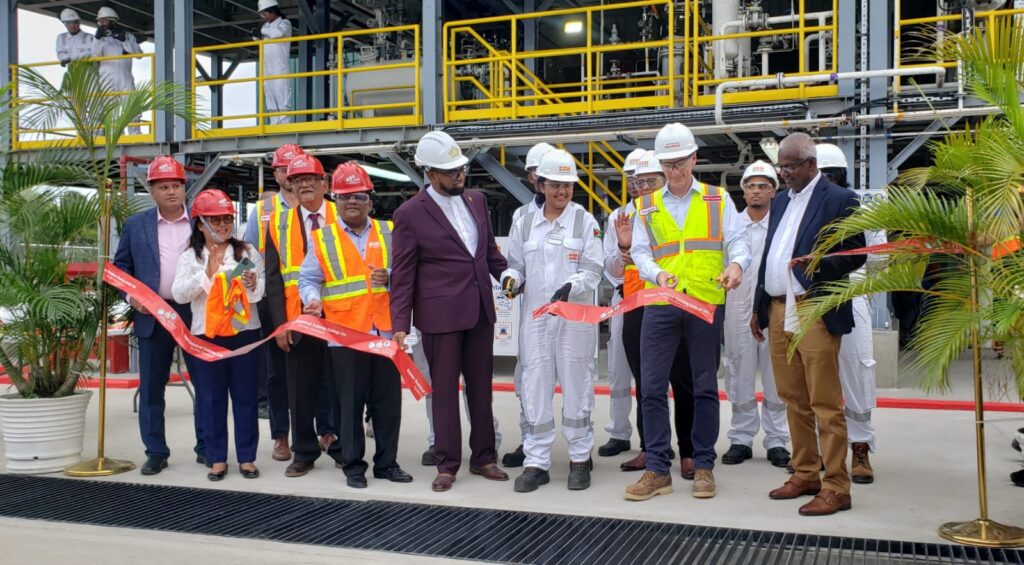
March: Guyana to become world’s largest per capita oil producer next year
The ONE GUYANA floating production, storage and offloading (FPSO) vessel is due to set sail from Singapore to Guyana early next year. ONE GUYANA is the fourth FPSO to be delivered by SBM Offshore and will be hooked up to the Yellowtail project’s subsea infrastructure. The project is targeting oil production at a rate of 250,000 barrels per day (b/d), taking ExxonMobil’s total production capacity offshore Guyana to 900,000 b/d. Guyana will be the world’s top per capita producer of crude oil.
April: Exxon greenlights US$12.7 billion Whiptail project in Guyana
ExxonMobil, Hess and CNOOC all made final investment decisions (FID) on the sixth Stabroek Block project in April. This is the third project with a design capacity of 250,000 b/d. Production is expected to begin by the end of 2027. The project FPSO, called Jaguar, will be delivered by SBM Offshore. By then, production capacity sanctioned by the Exxon-led Stabroek Block group will be above 1.3 million b/d.
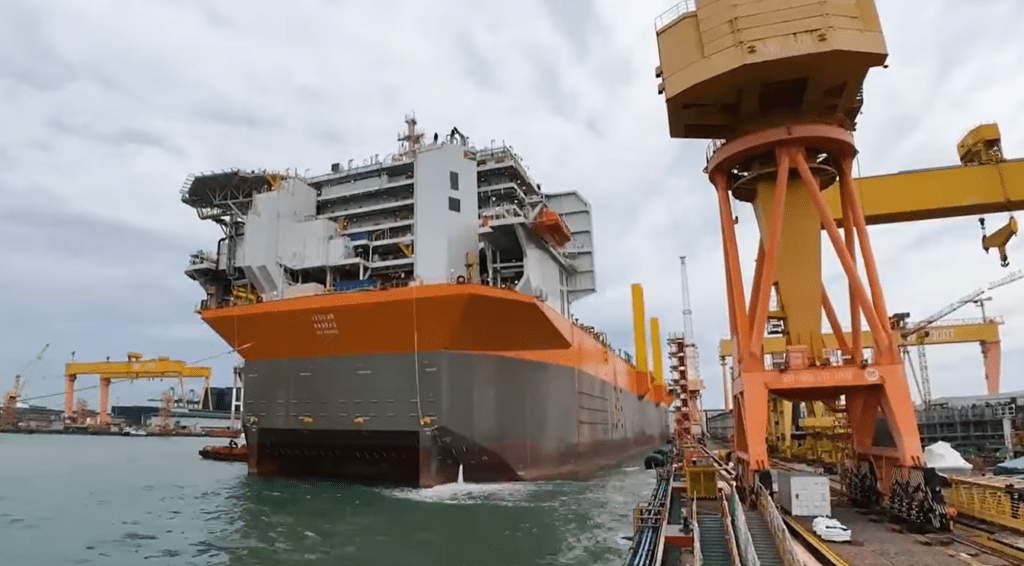
May: Stabroek Block partners see results in funded hinterland poultry project
‘Egg Sandwich’ is a GY$120 million (approximately US$586,000) investment project executed by The Consultancy Group in partnership with the Rupununi Livestock Producers Association (RLPA). The point of the Egg Sandwich was to boost hinterland poultry production. A team comprising representatives of the Greater Guyana Initiative (GGI – the funder) observed that 57 communities benefited from the project. The region’s first-ever hatchery was built with the capacity to process 2,160 eggs at once. Additionally, more than 1,000 poultry farmers got trained in poultry production methods and management. GGI, a US$100 million 10-year investment by Stabroek Block co-venturers ExxonMobil, Hess, and CNOOC, aims to develop the local workforce, enhance education, and promote sustainable economic diversification in Guyana.
June: Guyana’s oil boom creates new opportunities for culinary professionals
Aside from engineers, Guyanese chefs are benefitting a lot from the oil boom too. The oil sector has been tapping into culinary professionals trained at the Carnegie School of Home Economics. Carnegie conducted a needs assessment survey about three years ago, leading it to upgrade some hospitality-related programs to meet the oil sector’s needs. Jermaine Munoz, a baker working on the Prosperity FPSO, rated the two-year catering and hospitality program he did at Carnegie a 10 out of 10.

July: Guyana quickly moving up the ranks of World Bank’s high income economies
The World Bank listed Guyana 63rd in its ranking of global economies by their 2023 Gross National Income (GNI) per capita. The economic metric uses the Atlas method, which reduces the impact of exchange rate fluctuations and inflation differences. Guyana’s oil-fueled economic boom moved its GNI per capita up 36% from US$14,920 in 2022 to US$20,360 in 2023. By this metric, Guyana’s oil boom continues to drive it up the rankings as one of the wealthiest per capita countries in the hemisphere.
August: Just nine years after first discovery Guyana has seven projects in play with three already producing
Readers love feel-good stories, like how much of a success the unprecedented expansion of the oil sector has been in Guyana. Few countries have a record of advancement from first discovery to first production and then expansion of production in such a short time. From the Liza find in 2015 to a production capacity of 660,000 b/d five years later, Guyana is in a league of its own. And even now, ExxonMobil has a far way to go in its expansion plans.
September: T&T gas output drops below 2 billion cubic feet per day for the first time in 22 years
Trinidad’s monthly natural gas production has been on a steady decline for years, so much that Guyana now produces more hydrocarbons on the basis of barrels of oil equivalent per day (boe/d). In June, the Trinidad government reported a 22-year low of less than 2 billion cubic feet per day in the month of June 2024, due to declines from major producers—bpTT, Shell and Woodside. The Ministry of Energy and Energy Industries, in a statement addressing the decline, said this happened because of scheduled maintenance. Woodside also had an incident which led the company to halt production. Government data shows production has rebounded in subsequent months, with the Ministry projecting a year average of 2.5 bcf/d.
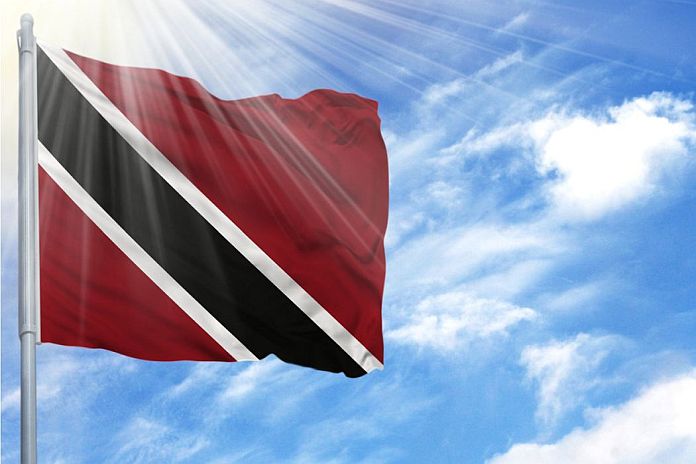
October: Guyana plans two large-scale hydropower projects to add 370 MW by 2035
Guyana Foreign Secretary Robert Persaud told the La Jolla Energy Conference in San Diego that the government plans two large-scale hydropower projects to add 370 megawatts (MW) to the grid by 2035. The first is the Amaila Falls Hydropower Project, which government envisions will start up in 2029. The location of the second project is yet to be determined. These would be the only large-scale renewable energy projects planned for the country. Meanwhile, offshore natural gas will be used to replace heavy fuel oil as the main source of power generation.
November: Guyanese companies to fabricate over 300 tonnes of steel for Jaguar FPSO
The hiring of Guyanese firms to fabricate 300 tonnes of steel for the Jaguar floating production, storage and offloading (FPSO) vessel is just one of a series of local content wins. Guyanese companies have been fabricating for FPSOs going back to Prosperity, which is currently operating at the Stabroek Block. Thanks to the Local Content Act, Guyanese companies continue to improve their standards and build wealth.
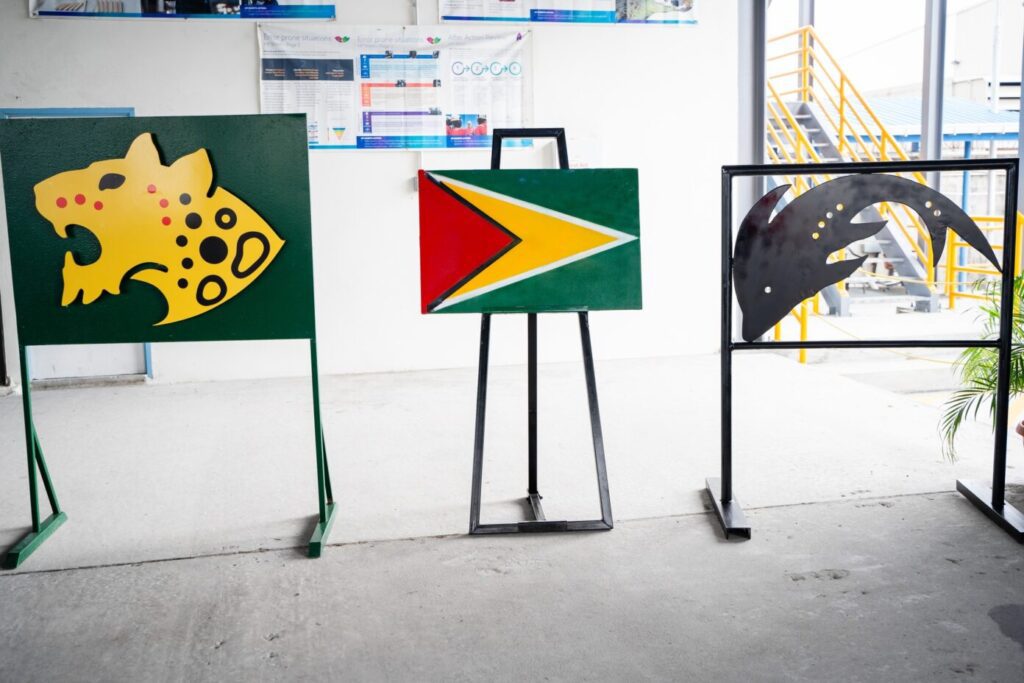
December: Guyana won’t allow free access to T&T products if there’s no reciprocity – VP Jagdeo
Guyana’s business community has long complained that Trinidad and Tobago erects non-tariff barriers to the entry of Guyanese exports in its local markets, in ways that are inconsistent with the spirit of the Caribbean integration movement. Vice President Bharrat Jagdeo told Guyanese manufacturers that they should do more to elevate the discourse to the public realm. He also suggested that they should approach the Caribbean Court of Justice (CCJ) for redress, given that the body, in its original jurisdiction, resolves disputes arising from the interpretation and application of the Revised Treaty of Chaguaramas. The Treaty establishes the Caribbean Community and Single Market Economy and Economy (CSME) and mandates the free movement of goods, among other things.
